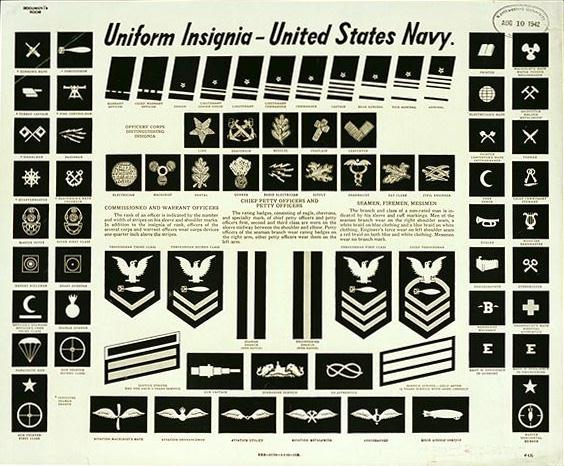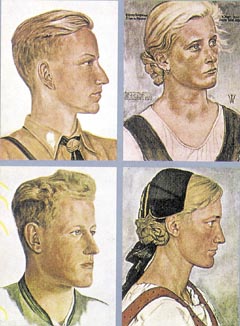 Considered Pablo Picasso’s greatest work, Guernica, dealt with the bombing of a town in the Basque region of Spain during the Spanish Civil War. Picasso refused to explain the symbolism he used in this painting, so it is more open to interpretation:
Considered Pablo Picasso’s greatest work, Guernica, dealt with the bombing of a town in the Basque region of Spain during the Spanish Civil War. Picasso refused to explain the symbolism he used in this painting, so it is more open to interpretation:

Here’s the Story of Picasso’s painting: http://www.pbs.org/treasuresoftheworld/a_nav/guernica_nav/main_guerfrm.html
W H Auden wrote this poem in 1937, entitled “Spain.”
Yesterday all the past. The language of size
Spreading to China along the trade-routes; the diffusion
Of the counting-frame and the cromlech;
Yesterday the shadow-reckoning in the sunny climates.
Yesterday the assessment of insurance by cards,
The divination of water; yesterday the invention
Of cartwheels and clocks, the taming of
Horses. Yesterday the bustling world of the navigators.
Yesterday the abolition of fairies and giants,
the fortress like a motionless eagle eyeing the valley,
the chapel built in the forest;
Yesterday the carving of angels and alarming gargoyles;
The trial of heretics among the columns of stone;
Yesterday the theological feuds in the taverns
And the miraculous cure at the fountain;
Yesterday the Sabbath of witches; but to-day the struggle
Yesterday the installation of dynamos and turbines,
The construction of railways in the colonial desert;
Yesterday the classic lecture
On the origin of Mankind. But to-day the struggle.
Yesterday the belief in the absolute value of Greek,
The fall of the curtain upon the death of a hero;
Yesterday the prayer to the sunset
And the adoration of madmen. but to-day the struggle.
As the poet whispers, startled among the pines,
Or where the loose waterfall sings compact, or upright
On the crag by the leaning tower:
“O my vision. O send me the luck of the sailor.”
And the investigator peers through his instruments
At the inhuman provinces, the virile bacillus
Or enormous Jupiter finished:
“But the lives of my friends. I inquire. I inquire.”
And the poor in their fireless lodgings, dropping the sheets
Of the evening paper: “Our day is our loss. O show us
History the operator, the
Organiser. Time the refreshing river.”
And the nations combine each cry, invoking the life
That shapes the individual belly and orders
The private nocturnal terror:
“Did you not found the city state of the sponge,
“Raise the vast military empires of the shark
And the tiger, establish the robin’s plucky canton?
Intervene. O descend as a dove or
A furious papa or a mild engineer, but descend.”
And the life, if it answers at all, replied from the heart
And the eyes and the lungs, from the shops and squares of the city
“O no, I am not the mover;
Not to-day; not to you. To you, I’m the
“Yes-man, the bar-companion, the easily-duped;
I am whatever you do. I am your vow to be
Good, your humorous story.
I am your business voice. I am your marriage.
“What’s your proposal? To build the just city? I will.
I agree. Or is it the suicide pact, the romantic
Death? Very well, I accept, for
I am your choice, your decision. Yes, I am Spain.”
Many have heard it on remote peninsulas,
On sleepy plains, in the aberrant fishermen’s islands
Or the corrupt heart of the city.
Have heard and migrated like gulls or the seeds of a flower.
They clung like burrs to the long expresses that lurch
Through the unjust lands, through the night, through the alpine tunnel;
They floated over the oceans;
They walked the passes. All presented their lives.
On that arid square, that fragment nipped off from hot
Africa, soldered so crudely to inventive Europe;
On that tableland scored by rivers,
Our thoughts have bodies; the menacing shapes of our fever
Are precise and alive. For the fears which made us respond
To the medicine ad, and the brochure of winter cruises
Have become invading battalions;
And our faces, the institute-face, the chain-store, the ruin
Are projecting their greed as the firing squad and the bomb.
Madrid is the heart. Our moments of tenderness blossom
As the ambulance and the sandbag;
Our hours of friendship into a people’s army.
To-morrow, perhaps the future. The research on fatigue
And the movements of packers; the gradual exploring of all the
Octaves of radiation;
To-morrow the enlarging of consciousness by diet and breathing.
To-morrow the rediscovery of romantic love,
the photographing of ravens; all the fun under
Liberty’s masterful shadow;
To-morrow the hour of the pageant-master and the musician,
The beautiful roar of the chorus under the dome;
To-morrow the exchanging of tips on the breeding of terriers,
The eager election of chairmen
By the sudden forest of hands. But to-day the struggle.
To-morrow for the young the poets exploding like bombs,
The walks by the lake, the weeks of perfect communion;
To-morrow the bicycle races
Through the suburbs on summer evenings. But to-day the struggle.
To-day the deliberate increase in the chances of death,
The consious acceptance of guilt in the necessary murder;
To-day the expending of powers
On the flat ephemeral pamphlet and the boring meeting.
To-day the makeshift consolations: the shared cigarette,
The cards in the candlelit barn, and the scraping concert,
The masculine jokes; to-day the
Fumbled and unsatisfactory embrace before hurting.
The stars are dead. The animals will not look.
We are left alone with our day, and the time is short, and
History to the defeated
May say Alas but cannot help nor pardon.
___________________________________________________________________________________
English author and socialist George Orwell (real name: Eric Blair) fought on the Republican side.
In the film Casablanca, it is asserted that the main character, Rick Blaine, “ran guns to Ethiopia and fought in Spain on the Loyalist side.”
From the American side, Ernest Hemingway agreed to report on the Spanish Civil War and wrote his masterpiece For Whom the Bell Tolls about the experiences of an American in the war.
By the way, here is a link to the archives for the Abraham Lincoln Brigade: http://www.alba-valb.org/






You must be logged in to post a comment.